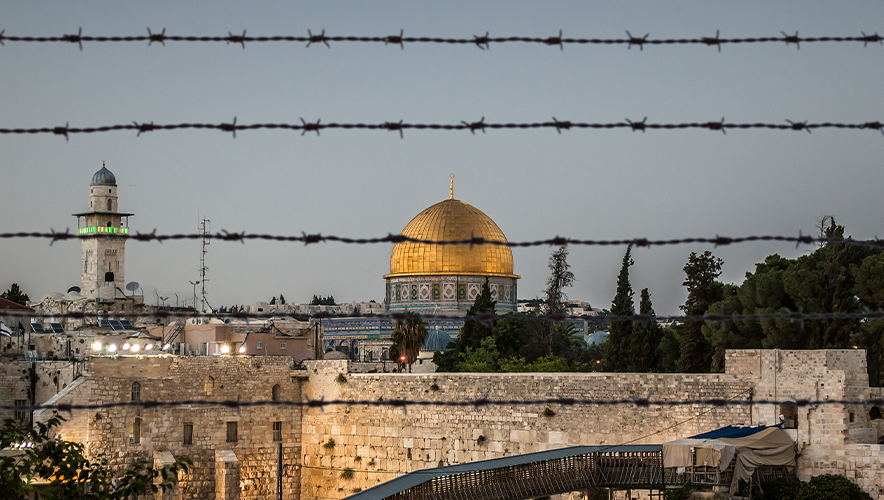Tensions Rise High Again Between Israel and Palestinians
Tensions in the Middle East have escalated since March, building up to some of the worst military exchanges in the region in years, including Arab and Israeli attacks in Israel and the West Bank.
In response to fighters in the Gaza Strip launching several rockets at Israel late on 20 April and in the early morning hours of Thursday, the Israeli Air Force attacked two military sites in Gaza, “the most intense fighting between the two sides since the end of an 11-day war in May last year,” The New York Times reported.
Although one of the rockets landed in southern Israel and another did not reach the country, four other rockets were intercepted by Israel’s anti-missile system, called Iron Dome.
Israel’s response was an attack on a militant outpost that produces missiles and a Palestinian air defense site.
Neither side reported fatalities.
But beyond the missile exchange, “Israel has seen the deadliest string of attacks in years,” according to the Associated Press. “Its troops have launched arrest raids deep inside the occupied West Bank, triggering gunbattles. Clashes have broken out at a major site in Jerusalem sacred to Jews and Muslims.”
In May 2021, the war between Israel and the Gaza Strip’s militant leaders was precipitated by weeks of protests and fighting—which leaders were hoping to avoid repeating, the AP reported. Months ago, Arab, Israeli, and Palestinian leaders were discussing how to avoid and dampen tensions, especially as the region anticipated tens of thousands of visitors for significant Christian, Jewish, and Muslim holidays.
However, a series of clashes and attacks have reopened the path to war.
One of the earliest attacks involved a Palestinian living in Israel who killed four people with a car and by stabbing in late March. During the following three weeks, separate active shooter events killed another 10 people, including in Tel Aviv. Although the Palestinian attackers largely acted alone, Hamas, an Islamist military group that holds Gaza, and other militant groups voiced support but not credit for the attacks.
Israel, which had previously eased some of the conditions of its military rule over millions of Palestinians, responded with raids and arrests across the West Bank. “At least 26 Palestinians have been killed, according to an Associated Press count, including the attackers and many who took part in the clashes,” the AP reported. “But the dead also include a lawyer and an 18-year-old woman who appear to have been bystanders, as well as an unarmed woman shot dead at a checkpoint.”
Clashes between Israeli police and Palestinians have further agitated and stoked emotions in the region, escalating to authorities firing rubber-coated bullets and stun grenades and Palestinians throwing stones, fireworks, and firebombs.
A delegation from the U.S. Department of States was dispatched to the area on 19 April. Acting assistant secretary for Near Eastern Affairs Yael Lempert “will engage with senior officials in the region to discuss reducing tensions and ending the cycle of violence in Israel, the West Bank, and Gaza,” the State Department said in a press release.
Recently, both Isreal and Hamas leaders repeated that they hope to avoid a repeat of the war in May 2021, with the hostilities, while still violent, allow “both sides to save face without forcing the other into a major escalation,” the Times reported. The non-lethal missile attacks allow militants to “express anger at events in Jerusalem without provoking a more violent Israeli reaction. By retaliating with nonlethal airstrikes, Israel proves to both Israelis and Palestinians that it won’t let any act of aggression go unanswered—but avoids pushing the militants into a corner.”
